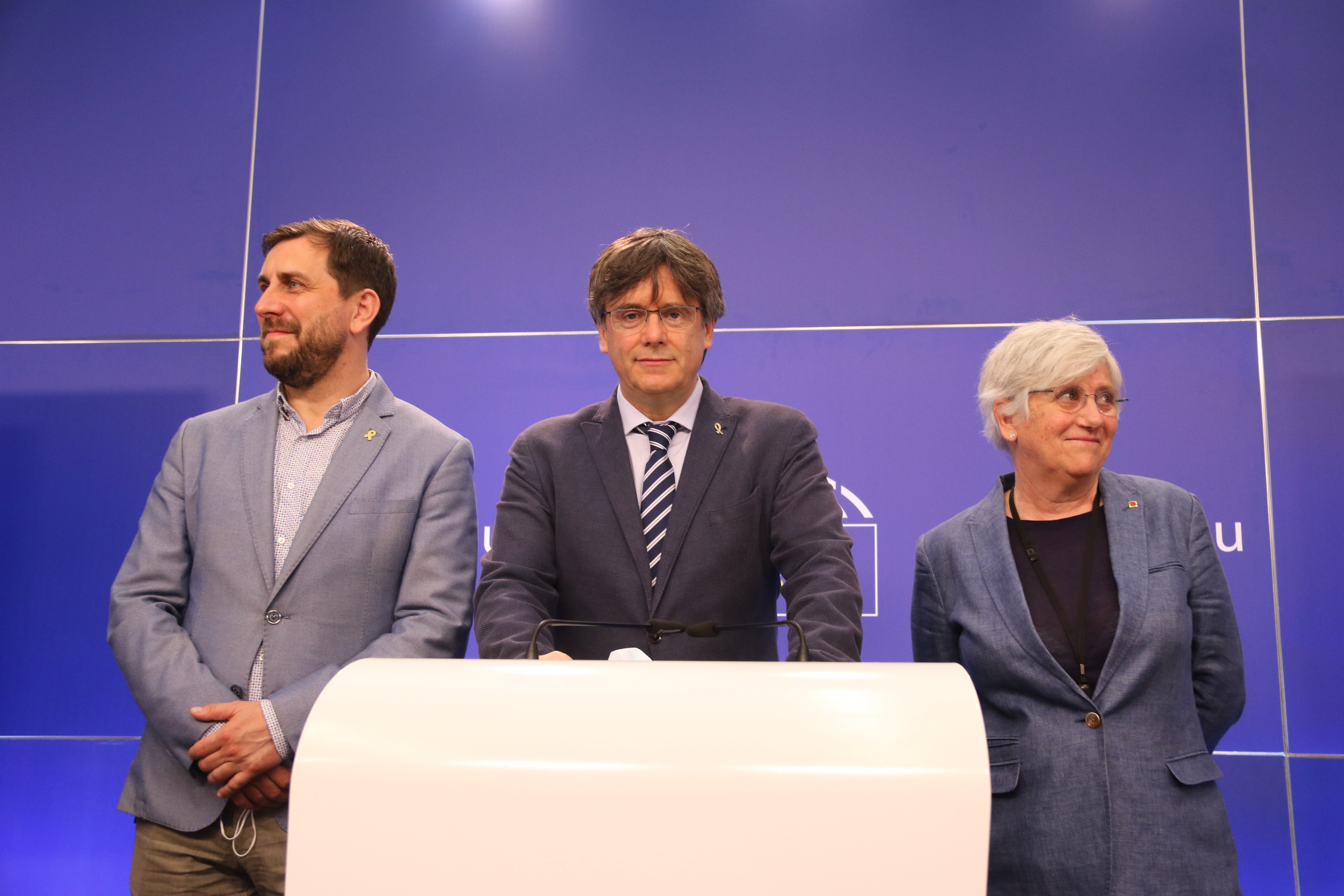A demand that increases the aggravation. The four prosecutors of the Spanish Supreme Court have asked judge Pablo Llarena to modify his interlocutory decree and to include the new crime of aggravated public disorder in the charges against the exiled Catalan president, Carles Puigdemont, and two of the former ministers of his government, Toni Comín and Clara Ponsatí. With regard to the crime of misuse of public funds, the Supreme Court prosecutors do not disagree with judge Llarena, but they do not give any detail on whether they accept the 'aggravated' variant of misuse of funds which Llarena has opted for, since the Chief Public Prosecutor's office has to make a single, joint interpretation. In his judicial decree updating the charges against the exiled Catalan politicians following the entry into law of the Spanish government's Penal Code reforms, Llarena prosecutes Ponsatí only for the crime of disobedience, and does the same for the ERC general secretary, Marta Rovira - a decision which, in her case, the Prosecutor's Office respects. In the case of the other former minister in exile, Lluís Puig, the prosecutors also go along with the judges' view, leaving him charged with disobedience and misuse of funds.
In the submission, presented this Tuesday, the prosecutors affirm that the new crime of aggravated public disorder (article 557.1.2 of the Spanish Penal Code) must be applied to the "defaulting defendants" because the actions that are included in the prosecution "fit fully" within the definition of this crime, despite the fact that this definition "does not exhaust all the illegal aspects of the conduct imputed to Puigdemont, Comín and Ponsatí". And for this reason, they say that it is necessary to include in the decree warrants for their arrest and admission to prison.
A demand for 17 years' prison for Puigdemont?
The crime of aggravated public disorder provides for a maximum penalty of 5 years in prison and a ban from holding public office in the event that there is violence and if committed by a person in authority. If, in the end, the prosecutors also accuse president Puigdemont of the crime of aggravated misuse of funds, the variant backed by judge Llarena, they could demand the maximum prison sentence for this crime, which is 12 years in prison. And together the maximum penalties for the two crimes would be 17 years in prison. Four years more than the sentence imposed on the ERC leader, Oriol Junqueras, who was vice president of Catalonia under Puigdemont.
The reasoning of the four prosecutors
The prosecutors state that "it is evident" that the serious disturbances to public order that the judgment of the 2019 Supreme Court trial declares proven "have not been decriminalized", and that if the crime of sedition has been repealed, "the appropriate legal match is aggravated public disorder", a crime - they maintain - without which the events could not have been classified as sedition. He adds that "it is obvious that the defendants acted in a group and with the purpose of attacking public order. And they executed it as promotors, inducers and mediated authors, through the organization of power, using as instruments the member of the public" called to take part. The letter is signed by the four prosecutors assigned to the Supreme Court: Consuelo Madrigal, Javier Zaragoza, Jaime Moreno and Fidel Cadena.
The effect on those convicted in the Supreme Court trial
With this interpretation, it is certain that the prosecutors will also ask the Supreme Court, presided over by Manuel Marchena, that in the review of the convictions of the pro-independence leaders after the elimination of the crime of sedition, to add the crime of public disorder for the nine people convicted.
In this regard, the prosecutors assert that the facts proven in the judgment of the process include, in several passages, tumultuous events resulting in serious disturbances to public order, difficulties and interruptions in traffic circulation, invasion of facilities and buildings with serious impact on the functioning of the administration of justice and the essential services of these centers, acts of intimidation and violence against people and things, damages that occurred on numerous occasions and scenarios, and sometimes, violent confrontations of thousands of citizens mobilized on September 20th and October 1st, 2017.
He adds that "the behaviour attributed to the defendants Junqueras, Romeva, Rull, Turull, Sànchez, Cuixart, Bassa and Forcadell allows the risks to be attributed to them", in reference to the new crime of aggravated public disorder. And he concludes: "It would not be understandable if the multitude of violent episodes, organized with the purpose of altering the constitutional order, planned, devised, directed, driven and carried out intellectually and materially by the accused, were regarded as irrelevant from the prism of public order."

